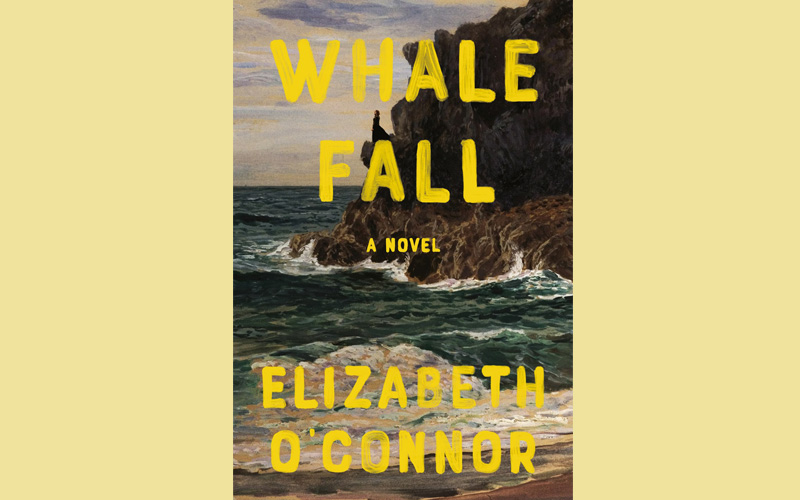There’s something exceptionally satisfying about a writer getting a simile right. When you read, you know that every piece of phrasing is a precise judgement, but there’s something brazen about a simile that means when it goes wrong it’s just awful. You won’t experience that awfulness while reading Whale Fall, and this is a debut novel that has even more going for it than that.
There are only two 18-year-olds on the novel’s island setting, because there are only 12 families living there in total. Our protagonist is Manod, one of the two, who lives with her emotionally detached father and her wilfully – and fabulously – semi-feral sister Llinos. The year is 1938, and while the rest of Europe is worried about impending war, the bigger news on the island is the stranding, death and decay of a whale, whose image and stench carry throughout the four months covered by the novel.
When two Oxford academics, Edward and Joan, arrive to carry out anthropological research, Manod is captivated by the promise of a world in which her intellectual gifts might earn her a life unbound by the narrow opportunities and expectations of the island. The book’s emotional power rests entirely on the closeness that O’Connor is able to weave between the reader and the narrator, and on the sorrow we feel as we realise that Joan and Edward are disingenuous not only in the fabricated narratives they spin of the island, but in the promises they make to Manod even after she works assiduously for them as their translator and assistant.
That we feel Manod’s sense of betrayal and disappointment as much as we do after such a short time knowing her is testament to O’Connor’s mastery of phrase, building the character in prose that is spare but always strikingly evocative. This is made more remarkable, perhaps, by the novel’s one real flaw: it’s too long. I told you that the whale is always there. The problem is, I’m not totally sure why. You have to work so hard to assign coherent meaning to each mention of the whale that one ends up wondering what the point of it is. It feels like O’Connor wanted something tangible to hang her novel from, and liked the idea of the evolving, obviously allusive, central symbol. But it could have been an albatross and very little would have changed. Which is to say, it could also not have existed.
Make no mistake: this is a lovely book. O’Connor has the makings of a great novelist. Just ignore the whale.







Click here to change your cookie preferences